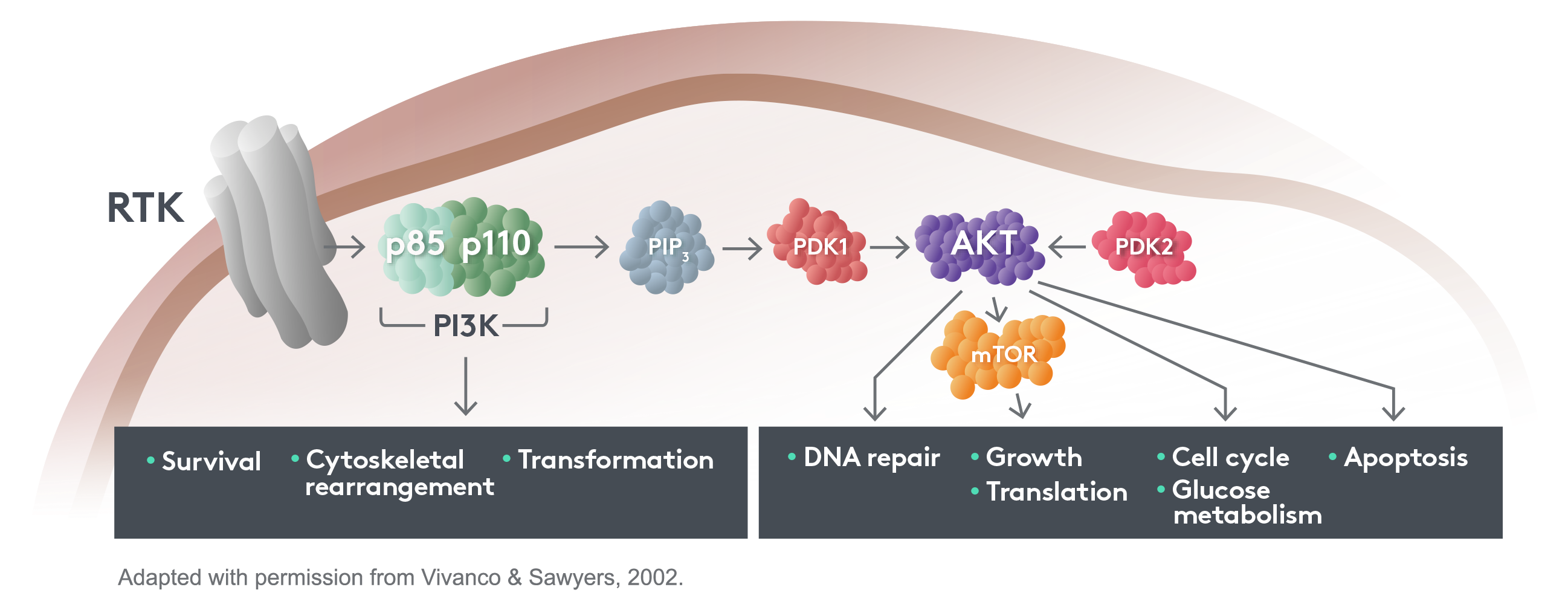Studies have firmly established the central role of PI3K signaling in several processes critical for cancer progression, including metabolism, growth, survival, and motility1

The PI3K pathway is the most frequently altered pathway in human cancers, including breast cancer 2

Activation of the PI3K pathway in breast cancer has been associated with resistance to endocrine therapy, and disease progression 1,2
Many of your patients may share mutations on the PI3K pathway2
REFERENCES:
- Courtney KD, Corcoran RB, Engelman JA. The PI3K pathway as a drug target in human cancer. J Clin Oncol. 2010;28(6):1075-1083.
- Lee JJX, Loh K, Yap Y-S. PI3K/Akt/mTOR inhibitors in breast cancer. Cancer Biol Med. 2015;12(4):342-354.
- Sadeghi N, Gerber DE. Targeting the PI3K pathway for cancer therapy. Future Med Chem. 2012;4(9):1153-1169.
- Vivanco I, Sawyers CL. The phosphatidylinositol 3-Kinase-AKT pathway in human cancer. Nat Rev Cancer. 2002;2(7):489-501.
- LoRusso PM. Inhibition of the PI3K/AKT/mTOR pathway in solid tumors. J Clin Oncol. 2016;34(31):3803-3815.
- Martinello R, Genta S, Galizia D, et al. New and developing chemical pharmacotherapy for treating hormone receptor-positive/HER2-negative breast cancer. Expert Opin Pharmacother. 2016;17(16):2179-2189.


